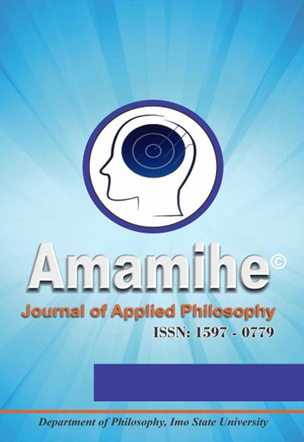
Vol. 20 No. 2, 2022
ABSTRACT
Actions and inactions of our political leaders, like all other members of our society, are subject to moral consideration since what they do or fail to do affects governance and our quest for social good. However, the morality or otherwise of their actions is not judged outside our moral intuitions if we must be fair to them. As Africans, is our ethical framework best captured and defined in terms of impartiality or partiality? In this work, we defend the idea that African ethics is defined in terms of partiality. Adopting Molefe's defense of partiality as characterizing African ethics but beyond his characterization, we argue that African ethics defined in terms of partiality rests fundamentally on human nature/personal identity. Given that our public office holders involved in governance are members of our society, then it is only natural to expect them to live and operate within this ethical framework. But then, the questions that agitate the mind are, what are the implications of an ethic of partiality for good governance? In administering the peoples of Nigeria and managing her resources for the good of all, has partialism fared well and if not why? We argue that strong partialism defeats our quest for a just society, fans the embers of disunity, separation and above all hampers development because of its proclivity to moral myopism and parochialism. However, based on the African maxim of ‘charity begins at home', we argue that partialism is not averse to good governance based on the principle of permeable boundaries.
